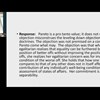one
Francesca Minerva: We are all lookist, but no one is blameworthy
Dr Francesca Minerva, FWO research fellow at the University of Ghent, department of philosophy and moral sciences. ABSTRACT Lookism is discrimination against the unattractive, and it is a widespread but
Daniel Cohnitz: Trust no one? The (social) epistemological consequences of belief in conspiracy theories
Daniel Cohnitz, Professor of Theoretical Philosophy, Utrecht University. Abstract Conspiracy theorists are typically skeptical about the trustworthiness of central governmental institutions. Some philos
Declining willingness to fight for one’s country: The individual-level basis of the long peace
Journal of Peace Research, vol. 52, no. 4, p. 418-434. Abstract The Democratic Peace thesis suggests that the absence of war between major powers since 1945 is caused by the spread of democracy. The
James Fishkin: Is Deliberation an Antidote to Extreme Partisan Polarization? Reflections on “America in One Room”
AbstractIs Deliberation an Antidote to Extreme Partisan Polarization? Reflections on “America in One Room” Register here to join the seminar This talk is positioned at the intersectionof two literatures

Richard Arneson: Should we reward the deserving? Some puzzles
Do plausible fundamental principles of justice incorporate the idea of rewarding the deserving? Utilitarianism is famously indifferent between a world in which saints fare badly and scoundrels fare we

H. Orri Stefánsson
I am Professor of Practical Philosophy and Wallenberg Academy Fellow at Stockholm University, and Researcher at the Institute for Futures Studies. My current research mostly concerns how one should cho uncertainty, including situations where one suspects that the outcome of one’s actions (or inaction) could be catastrophic.
Transformative Experience and the Shark Problem
Philosophical Studies Abstract In her ground-breaking and highly influential book Transformative Experience, L.A. Paul makes two claims: (1) one cannot evaluate and compare certain experiential outcomes evaluate and compare certain intuitively horrible outcomes (e.g. being eaten alive by sharks) as bad and worse than certain other outcomes even if one cannot grasp what these intuitively horrible outcomes are like. We argue that the conjunction of these two claims leads to an implausible discontinuity in the evaluability of outcomes. One implication of positing such a discontinuity is that evaluative comparisons of outcomes will not be proportionally sensitive to variation in the underlying features of these outcomes. This puts pressure on Paul to abandon either (1) or (2). But (1) is central to her view and (2) is very hard to deny. We call this the Shark Problem.
Bi Puranen moderates debate at UNESCO
On the 25–26th of March, UNESCO organizes a big international workshop titled "Measuring Social Public Policies: Inclusiveness and Impact" in Paris. The workshop is organized within UNESO's Management
John Broome: A Climate Bank to Combat Climate Change
The usual way of thinking about climate change is that the present generation will have to make large sacrifices in order to reduce emissions. For example, by consuming less goods and services. This is one reason why cutting emissions is so hard. But what if there is a way to get climate change under control where no one needs to sacrifice?
Asymmetry and Non-Identity
Utilitas, Volume 31, Issue 3, pp.213-230. doi.org/10.1017/S0953820818000341 Abstract In this article we distinguish two versions of the non-identity problem: one involving positive well-being and one inv








